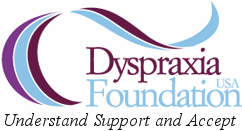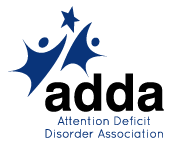Documentation for College
It is crucial to have the complete and correct documentation for services in college. Here are the answers to some questions you may have.
What is a documented disability?
Federal disability laws define disability as an impairment that substantially limits one or more major life activities. Major life activities include, but are not limited to: sensory conditions, walking, learning, concentrating, communicating, and speaking.
Are colleges required to provide accommendations?
Any college that is receiving federal funding must ensure students with equal access, which means they have to provide reasonable accommodations. It is the word “reasonable” that can become problematic.
Also, you need to understand the difference between a public college and a private college. A public college received federal funding, and private one does not.
What qualifies as documentation?
The list below is specific to ADHD and ASD. Many colleges list specific documentation on their websites for different diagnoses, so be sure if you have a different diagnosis that you are getting the correct documentation. In general, the documentation you submit to college should include the following:
- A description of the disability, including the diagnosis and history
- A description of the current impact in daily living and an educational setting (i.e., how is the disability limiting)
- A description of the expected duration, frequency, severity, and progression of the condition
- A description of the past use of disability services. This part could be a 504 or IEP from your high school if you have one.
The documentation needs to be completed by a licensed professional or credentialed examiner and done within the past three years.
Examples of disability documentation could include:
- Educational, psychological, or medical records
- Reports and assessments created by healthcare providers, psychologists, or an educational system
- Documents that reflect education and accommodation history, such as Audiology Reports and Vision Assessments
- SDS verification form of a disability
- Statement from a health or other service professional
- Vocational Assessment
You may be asked to submit additional documentation if what you provide is incomplete. I would suggest submitting documentation as soon as you choose a school.
What should you know about documentation?
Disability documentation is confidential information from an appropriately certified professional who is knowledgeable about you and your condition. These professionals include physicians, educational psychologists, therapists, mobility specialists, and rehabilitation counselors. College Disability Services use these documents to determine and verify eligibility under the ADA, which, if any, they will offer a student.
Your documentation may include suggested reasonable documentation, but it is each college’s Disability Services that make the final decision about eligibility and appropriate accommodations based on the requirements of the academic program at that institution.
Disability Services only last one semester, unlike the annual 504 a student had in K-12. A request for disability services needs to be made each semester by the student. I would suggest that students’ put a reminder on their phones for the same time as registration for the next semester.
Colleges don’t provide communication with parents, even if your student is 17 when they start college. If your student needs your support, they can sign a waiver and decide which topics can be discussed with a parent. From what I have heard from clients, colleges will try to talk the student out of signing such a waiver.
You should keep a copy of all the documentation and any new documentation for yourself. Colleges only hold on to it for a limited time. Collecting this documentation can be a process that you do not want to do twice.


Big Bang Coaching, LLC provides coaching for the neurodiverse.














